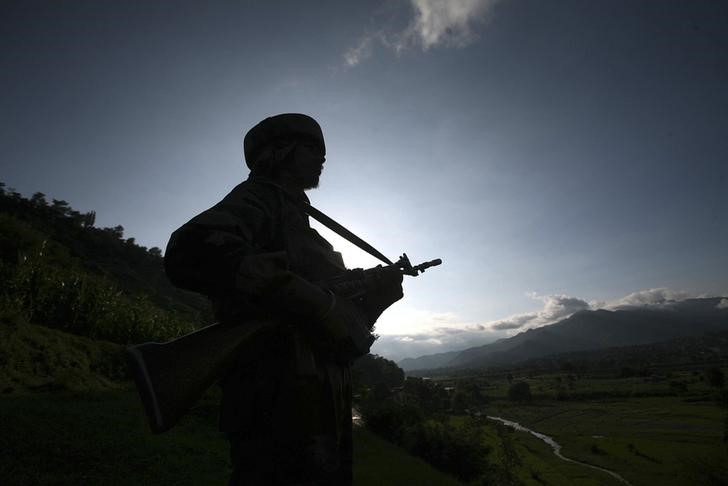By Mubasher Bukhari
LAHORE, Pakistan (Reuters) - Pakistani police said on Saturday 10 militants from Jamaat-ur-Ahrar, a faction of the Pakistani Taliban, died in a gun battle in the eastern city of Lahore, including a key suspect behind a February blast that killed 13 people.
The clash came just days after a suicide attack claimed by the Pakistani Taliban on an army census team that killed at least six people and wounded 18 in Lahore, Pakistan's second-largest city.
Scores of people have been killed since the beginning of the year in a series of attacks that have dashed hopes of an end to the violence of recent years and stepped up pressure on Prime Minister Nawaz Sharif's government to improve security.
Police said that they were taking five militants to recover weapons and explosives on Lahore's outskirts early on Saturday morning when they were attacked by a group of about nine militants who freed the captives.
Police called for reinforcements and encircled the area, challenging the militants to surrender.
"A gun battle ensued. When firing stopped 10 militants were found dead by the firing of their fleeing accomplices," a spokesman for the Counter Terrorism Department in Punjab said in a statement.
Among those killed was a collaborator in a suicide bombing attack in February in Lahore, the statement said. The man had been arrested soon after the blast after he was spotted on security footage walking with the bomber.
Jamaat-ur-Ahrar claimed responsibility for February's attack in Lahore that left 13 dead, as well as an Easter Day bombing last year that killed more than 70 people in a public park in Lahore.
Separately on Saturday, another banned Islamist group, Lashkar-e-Jhangvi, claimed responsibility for killing a member of the Ahmadi sect in Lahore, the second member of the minority community to be murdered in just over a week.
Ashfaq Ahmad, a retired veterinary doctor, was shot by a gunman on a motorcycle as he was travelling by car on Friday, less than two weeks after a prominent member of the sect was killed in Nankana, near Lahore.
Ahmadis are members of a sect which regards itself as Islamic but who are not allowed to call themselves Muslim under Pakistan's blasphemy laws. They have been frequent targets of militant attacks.
Pakistani security forces in February killed around 100 militants after a Sufi Shrine bombing in February that killed more than 80 in the southern province of Sindh.
The spate of attacks has ratcheted up tensions with neighbouring Afghanistan, which some Pakistani officials accuse of sheltering Pakistani Taliban militants. Afghanistan's government, in its turn, accuses Islamabad of aiding the Afghan Taliban, a charge Pakistan denies.
